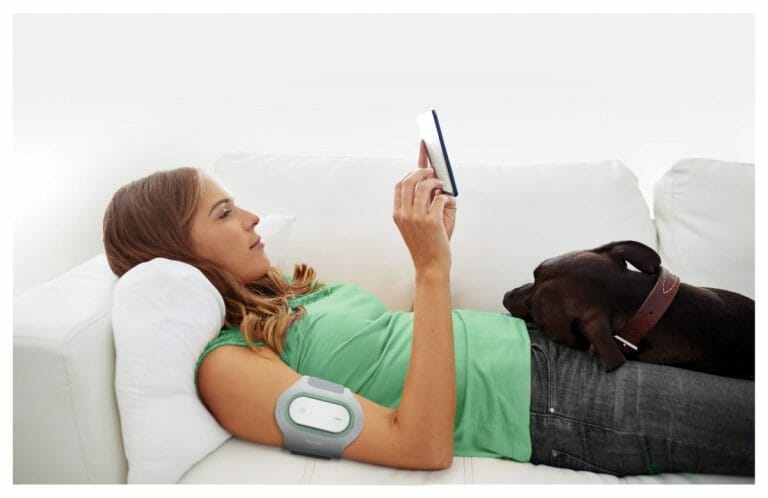Theranica Bio-electronics, a prescribed digital therapeutics company developing advanced digitally connected neuromodulation devices for migraine and other pain conditions, today announced positive top-line results in its double-blind, randomized, placebo-controlled, multi-center, pivotal clinical trial in the USA (NCT04828707).
This trial evaluated the efficacy and safety of Nerivio® for the preventive treatment of migraine in both episodic and chronic migraine patients. The study met the primary endpoint, demonstrating a statistically significant reduction from baseline in monthly migraine days in patients treated with Nerivio®, compared with a placebo device.
Subjects who used Nerivio® every other day experienced a reduction of 4.0 migraine days per month from baseline, compared to a reduction of 1.3 days in the placebo group (net therapeutic gain of 2.7 days, p<0.0001). The study further analyzed the reduction of monthly migraine days separately for chronic migraine participants, who experienced a reduction of 4.7 days (placebo: 1.6 days, p=0.001); and episodic migraine patients, who experienced a reduction of 3.2 days (placebo: 1.0 days, p=0.003).
40% of the 248 study participants used concomitant preventive medications, mainly prescribed oral medications, CGRP monoclonal antibody injections, and Botox® injections. Similar to the general study population, their separate sub-analysis shows a reduction of monthly migraine days by a gap over placebo, with a reduction of 3.5 days (placebo: 1.5 days, p=0.03).
Statistically significant superiority of Nerivio® over placebo was further demonstrated in other endpoints. These include mean reduction of monthly headache days (reduction of 4.5 days [placebo: 1.8, p<0.0001]), and moderate/severe headache days (reduction of 3.8 days [placebo: 2.2, p=0.005]), percentage of patients experiencing a reduction of headache days and moderate/severe headache days, mean reduction of acute-medication days (reduction of 3.5 days [placebo: 1.4, p=0.001]), and more.
These statistically significant results were obtained both on the entire Intent-to-Treat (ITT) dataset of 248 subjects, as well as the most adherent modified ITT (mITT) dataset of 179 subjects.
Only one, mild device-related adverse event was reported in the study, which occurred in the placebo group and was categorized as mild and resolved without intervention.
Brian Grosberg, MD, Director of the Hartford Healthcare Headache Program in Connecticut and primary investigator of the study, commented: “These data demonstrate Nerivio’s potential to provide a new non-pharmacological preventive treatment option for people with migraine. The high efficacy of Nerivio® compared to placebo, with favorable safety and tolerability, suggests that Remote Electrical Neuromodulation (REN) could be a beneficial non-pharmacological therapy option for both preventive and acute treatment of migraine, subject to FDA approval.”
“There is a growing recognition that certain chronic pain diseases, such as migraine, may be treated with therapies other than pharmacological agents, or in combination with those. This is validated by clinical evidence from randomized controlled studies such as this one, as well as real-world evidence studies,” said Alon Ironi, Chief Executive Officer of Theranica. “It is well-known that individuals with migraine have varied responses to therapies, and sometimes respond best to a combination of different modalities. The results of this study further support the notion that migraine care should develop beyond solely pharmaceuticals, and Theranica is a leader in scientifically exploring and applying this novel non-pharmacologic approach for patients and providers.”
“We look forward to working with the FDA on the regulatory clearance process, and, in parallel, to sharing detailed information from the study in peer-reviewed publications and upcoming scientific conferences, and to continue advancing this innovative therapy for the preventive treatment of migraine,” said Dagan Harris, PhD, Vice President of Clinical and Regulatory Development at Theranica.
